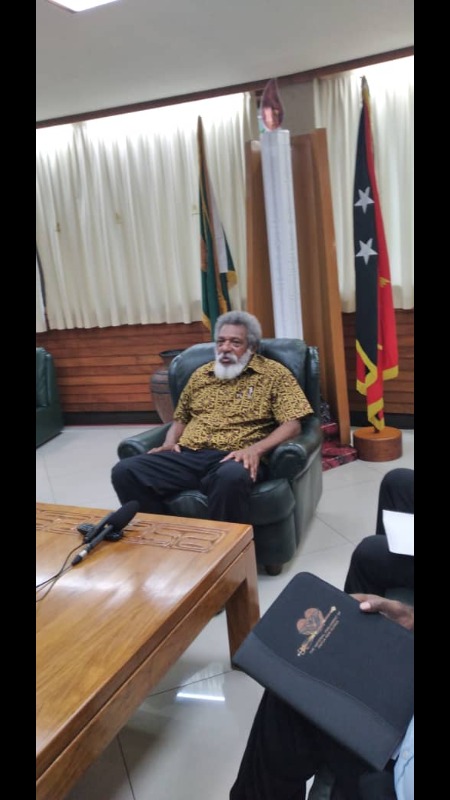A call has been made on the Speaker of Parliament to continue to maintain neutral conduct in Parliament to bring the House to order.
This call was made by senior PNG lawyer Alois Jerewai during a Media workshop facilitated by the Media Development Initiative on recent Parliament events.
Mr Jerewai said it is desirable during this critical time in politics for OLIPAC to make provisions on the conduct of parliamentarians however, Mr Jerewai also believes that the primary responsibility falls squarely on the shoulder of the Speaker of the National Parliament.
“The Speaker of the Parliament, by nature of his office and as head of the third equal arm of the three arm government system we have under our constitutional parliamentary democracy; is equal to the Prime Minister and equal to the Chief Justice as head of one of the three arms of government.”
“Therefore, the Speaker must maintain a very high level of independence and neutrality because he is the sole custodian of the entire proceedings of the Parliament in accordance with the necessary laws such as the parliament privileges and standing orders.”
Mr Jerewai said the Speaker must resign from any political parties he is affiliated with to maintain neutrality.
Meanwhile Mr Jerewai said the motion moved by Opposition Leader Belden Namah in Parliament on the 13th of November to suspend Parliament to the 1st of December was made right after he moved a motion to suspend standing orders.
That is an area where the Supreme Court must interpret when the speaker says the move was unconstitutional.
“Suspension of the Standing Orders of the Parliament is available under section 281 of the standing orders.”
“The question will be whether, the suspension of the orders has pursued under section 281 of the standing orders is competent when you have section 2(1)(a)(i) that says that only a Minister can move a motion for an adjournment and for fixing the date for the next meeting of parliament.”
“This is where the difficulty comes in, therefore it is a grey area for Law which needs to be interpreted by the Court.”
Jerewai added that in such cases, the Speaker needs to step in and bring both the Government and opposition together to understand what the Supreme Court is about to interpret.
“And this also where the neutrally of the Speaker comes in, to be able to say to both sides that these issues are very important and we have to invoke the Supreme Courts sole interpretive powers under the constitution to determine if those events that took place are valid or invalid.”
Mr Jerewai further said that the events that took place on the 17th of November as a result of the Speaker’s actions is a matter that can be hotly debatable.

“The actions of the Speaker in itself on the 17th demonstrates neutrality as an issue.”
Meanwhile, Mr Jerewai said issues to do with parliamentarians should be resolved within the parliament precinct and not at the Court House.
“There is an issue relating to the adjournment on the 13th of November and the reconvention of the parliament on the 17th and that must be resolved according to the standing orders of parliament.”
“Why run to the courts? Especially the Supreme Courts! That in my view is irresponsible.”
“The Speaker has the power to again reconvene parliament under the same Organic Law. “
Jerewai also stated, without going to the Supreme Court, parliament can reconvene and resolve according to its own procedures.
He added, if there are disagreements when parliament reconvenes then the Chief Justice can step in to intervene.
“Set up a set of very specific questions and let the Supreme Court convene and determine these questions and give its opinion.”
“You don’t have to be on a competitive level to contest these matters, these are matters of public importance and public interest.”
All in all, Mr Jerewai said it all comes down to the Speaker of Parliament to reconvene Parliament and use the Parliament standing orders and procedures to deal with the recent events first before heading to Supreme Court.

